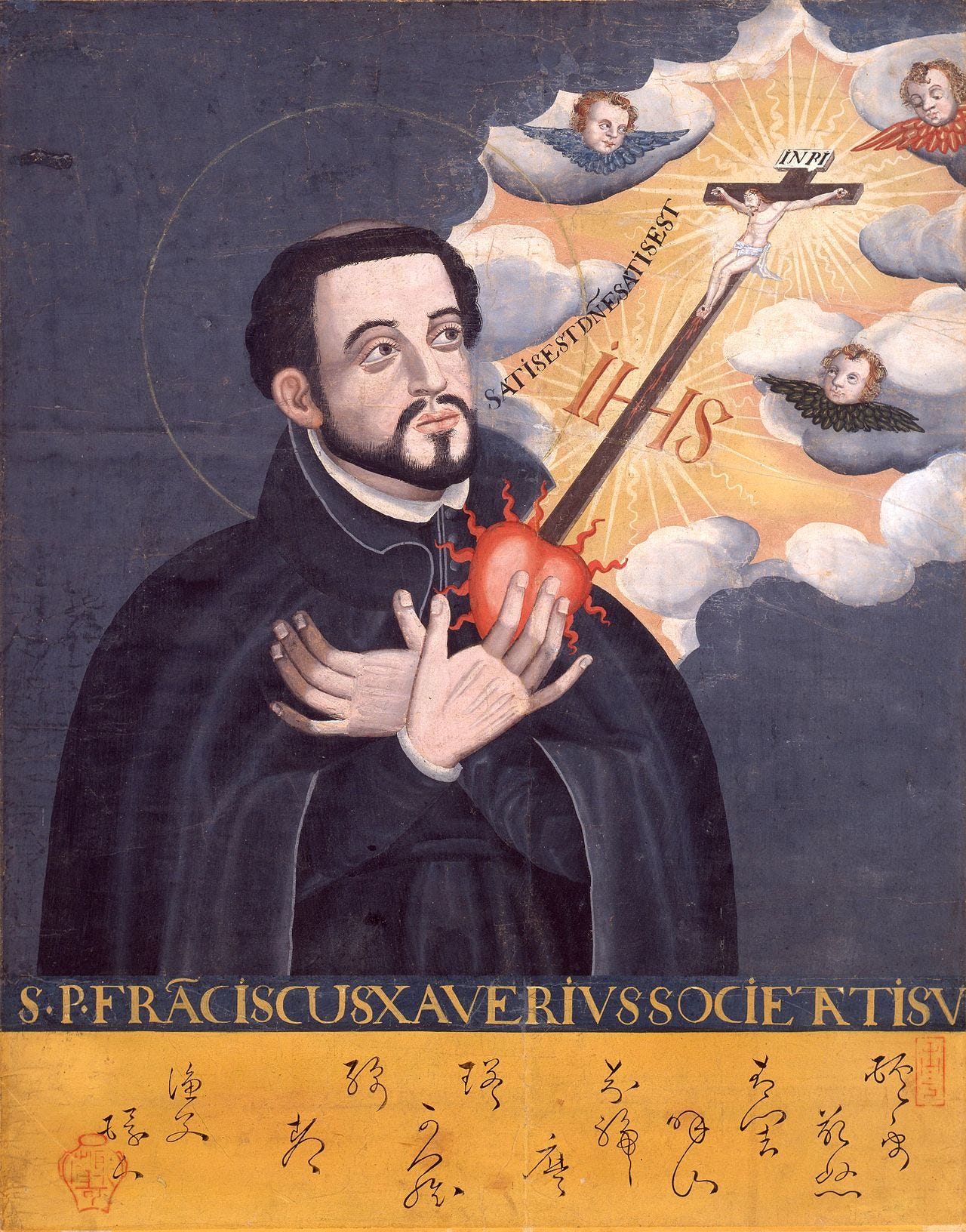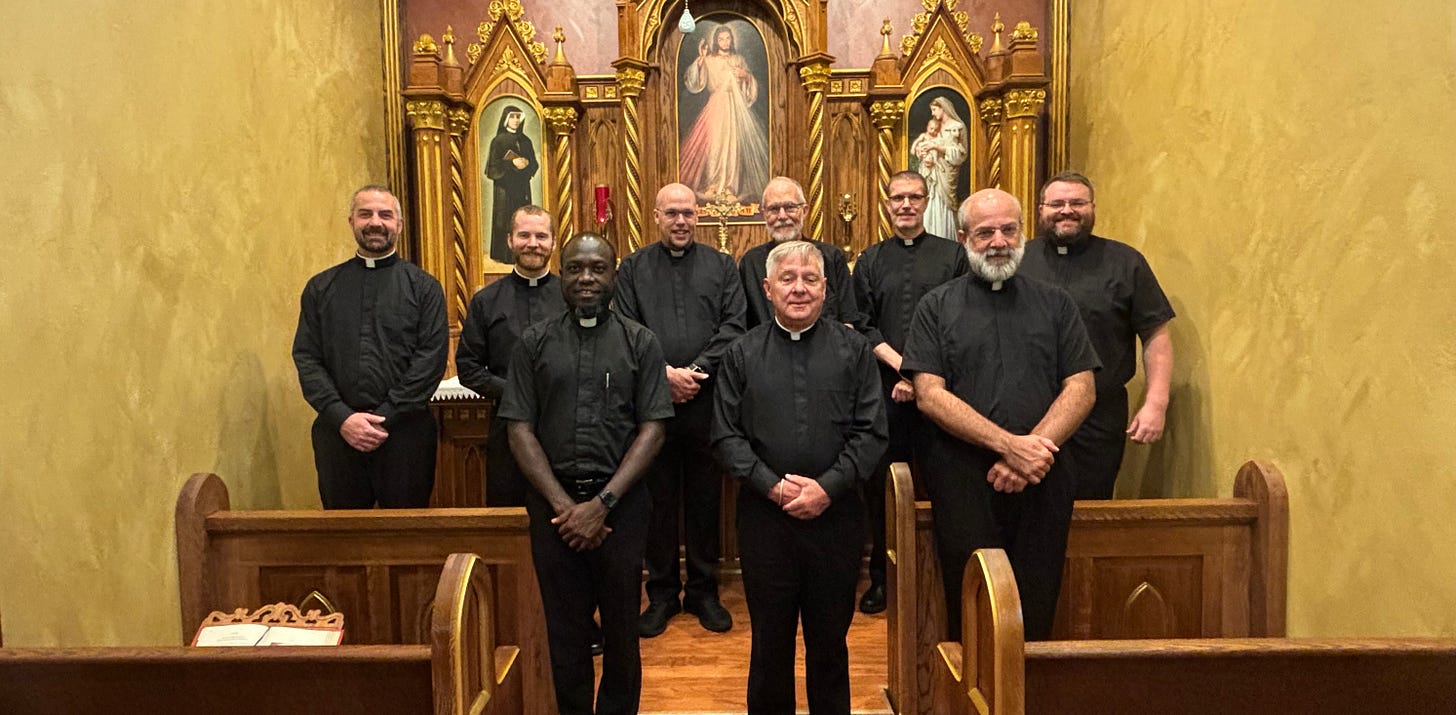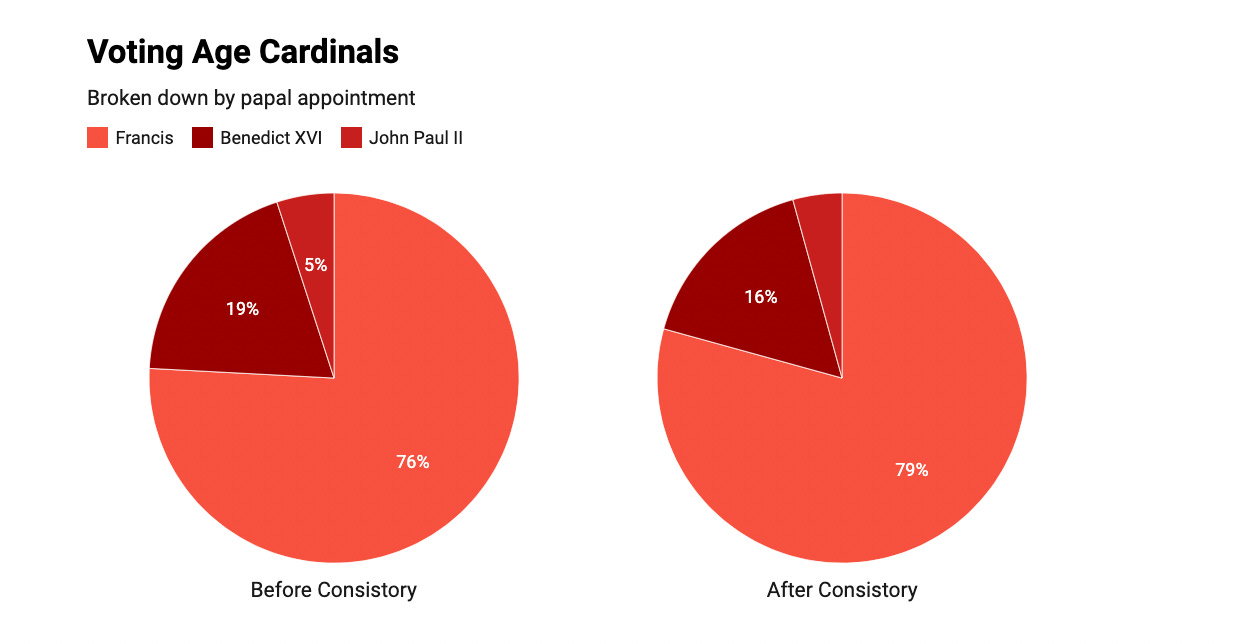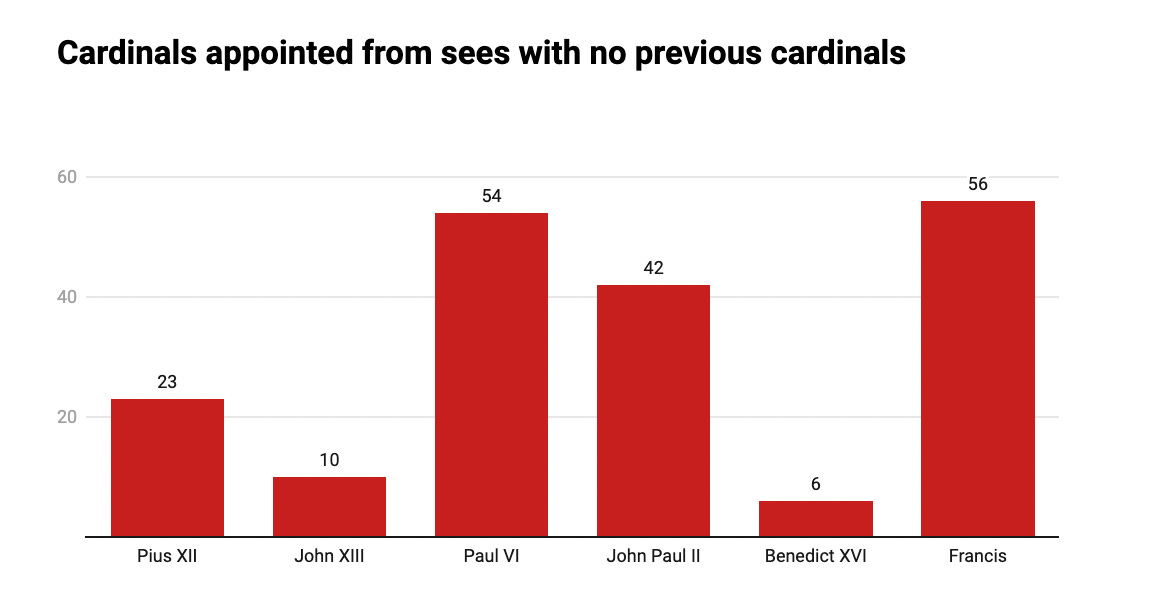Pillar subscribers can listen to this Pillar Post here: The Pillar TL;DR
Hey everybody,
You’re reading The Tuesday Pillar Post, and today’s the feast of St. Francis Xavier, one of the greatest missionaries in Christian history.
Before we get to the news, I want you to read from this letter of St. Francis Xavier, which is featured in today’s Office of Readings:
“Many, many people hereabouts are not becoming Christians for one reason only: there is nobody to make them Christians. Again and again I have thought of going round the universities of Europe, especially Paris, and everywhere crying out like a madman, riveting the attention of those with more learning than charity: ‘What a tragedy: how many souls are being shut out of heaven and falling into hell, thanks to you!’”
“I wish they would work as hard at this as they do at their books, and so settle their account with God for their learning and the talents entrusted to them.”
“This thought would certainly stir most of them to meditate on spiritual realities, to listen actively to what God is saying to them. They would forget their own desires, their human affairs, and give themselves over entirely to God’s will and his choice. They would cry out with all their heart: Lord, I am here! What do you want me to do? Send me anywhere you like – even to India.”
I wrote to you last week that Christ is coming, and I meant it. Francis Xavier felt the urgency of that prospect. So he made himself available to the Lord.
And then — I read this morning — he took up a simple method of evangelization and catechesis.
He started with nominal Christians, people who told him they were Christians, but who knew “nothing of the precepts and mysteries of our holy religion.”
He asked those people if they wanted to pray with him, and he prayed. And then he explained to them the meaning of our prayers, of our catechism, and most especially of our creed. He recited the creed over and over again, often enough that children who listened to him learned it “well by heart.”
“And all the time I kept telling them to go on teaching in their turn whatever they had learnt to their parents, family, and neighbours.”
Those Christians learned the faith, and learned to pray, and found themselves on fire.
Xavier encouraged them, children especially, to visit the sick and recite the creed, to recite the catechism in the presence of their families.
It bore fruit. More people came.
All that worked so well that “it often happens to me to be hardly able to use my hands from the fatigue of baptizing: often in a single day I have baptized whole villages. Sometimes I have lost my voice and strength altogether with repeating again and again the Credo and the other forms,” Xavier wrote.
That stuff isn’t consigned by fate to the history books. We don’t have to imagine that evangelization like Xavier’s can’t happen now. We don’t have to resign ourselves to the false idea that great moments of conversion belong to some halcyon and heroic days of the past.
Nor should we comfort ourselves with those false ideas.
We can, and should, be the missionaries of our moment.
“Many, many people hereabouts are not becoming Christians for one reason only: there is nobody to make them Christians.”
Christ is coming.
The news
(Like most of you did, I hope, our stateside crew took Friday off, save for Michelle’s excellent Friday Pillar Post. That means we’ve got basically less news here than we ordinarily would — but at the same time, we’ve got a lot of stories in process for a Tuesday morning, so, you know, we’ll catch up. Meanwhile…)
While the Apostolic See does not have diplomatic representation in Nicaragua — the nuncio having been forced to flee the country — Pope Francis has signalled his support for the Church in Nicaragua several times since persecution ramped up in 2018 and 2019.
The persecution has gotten more intense in recent weeks. Bishop Carlos Herrera, president of the country’s episcopal conference, was forced into exile last month. And in recent weeks, priests have been forbidden from visiting sick and dying people in public hospitals.
Here’s the latest, and what the pope has to say.
Government officials supporting the bill say that’s not the case. But in some jurisdictions, anti-hate speech bills have seen people face prosecution for articulating the principles of their faith.
So what will happen? Here’s our report.
—
As tension over liturgy continues in the Syro-Malabar Archeparchy of Ernakulam-Angamaly, a priest was suspended this month, after he was in attendance at a liturgical protest, and allegedly disrespected a parish pastor, in an unspecified manner the archdiocese called “humiliating.”
There are conflicting accounts of what happened at a Nov. 24 incident, but whatever they were, they led to the suspension of Father Jeff Pozheliparambil, a young priest of the archeparchy. And the suspension has gotten a lot of pushback from diocesan clerics — which could tip the balance of things in a very fractious liturgical dispute.
Read Luke Coppen’s reporting, right here.
Are you a diocesan priest who is interested in living your priesthood more deeply? The Secular Institute of the Priests of the Heart of Jesus might be for you! We are priests seeking to support one another in ministry through the profession of the evangelical counsels and ongoing priestly fraternity. Learn more!
And after Saturday’s consistory, nearly 80% of voting-age cardinals will have been appointed by Pope Francis — not surprising, after an 11-year pontificate.
It’s also noteworthy that Francis has by now appointed more cardinals from previous un-cardinaled sees than any other recent pope — Pope St. Paul VI held the record until 2023, when Francis surged past it.
Read more data on the College of Cardinals, from The Pillar’s Brendan Hodge.
The Vatican suppressed the monastery by declaring it vacant — technically “extinct” — noting that the solemnly professed sisters in the monastery were dismissed from the Carmelites in October for the charge of “notorious defection” from the faith.
The nuns apparently did not appeal that ruling, the Diocese of Fort Worth told me, leading to the suppression of the monastery. Practically speaking, this likely means a new chapter to the division over the now-former-monastery, but not entirely its conclusion. The now-former-nuns, having rejected the dismissal order against them, seem likely to continue living as religious where they are, with the support of the Society of St. Pius X and the excommunicated Archbishop Carlo Vigano.
As a canonical matter, the Carmelite Association of Christ the King has a right to the monastery property — but since it’s civilly owned by a non-profit supporting the now-former-nuns, it seems highly unlikely the association — a federation of Carmelite monasteries — will make an effort to lay claim to the Carmel.
I expect that the monastery will retain a following, and continue to see priests without faculties show up for sacramental ministry of various kinds. I expect that Olson — never one to let things lie — will continue to make strongly worded warnings about the illiciety of liturgies there.
Amid all of that, there is an interesting canonical question which has not really been resolved in the case.
Canonical commentators are split about the nature of the “notorious defection from the faith” that can lead to expulsion from a religious order.
Some interpret “notorious defection” relatively broadly, suggesting that it could encompass a whole host of conduct by which a religious severs communion with the Church. Others take a more strict interpretation, suggesting only that public abandonment of the Catholic religion — practicing or seeking orders in some non-Catholic religion — fits the bill.
When the Texas nuns were dismissed, their canonical superior said it was because a “triple denial” of authority — that of a local bishop, that of a religious superior, and that of a Vatican dicastery, which seemed to amount to “notorious defection” — especially when coupled with association with the Society of St. Pius X, and with “their illicit expropriation of the juridic person of the Carmelite Monastery, in which the nuns, utilizing civil law, entrusted to lay people, both Catholic and non-Catholic alike, the patrimony and property of the Arlington Carmelite community.”
This application of the law would seem to hew to the broader view of notorious defection — suggesting that notorious defection is constituted by a set of actions which like invalid alienation and a kind of seemingly undeclared schism.
Some canonists have questioned that in recent days, given that any schism wasn’t publicly declared, that there are established penalties for disobedience to Vatican directives, and given that the now-former-nuns insist that they do not intend to abandon the Catholic religion — even while they have rejected the authority of the Church to oversee their religious life and its administration.
It is, in short, a compelling canonical question about the limits of a particular disciplinary canon, played out publicly in real life.
If I’m honest, I’m not sure what the Holy See would have done if the now-former-nuns had appealed their dismissal. I suspect ultimately it would have been upheld — but there would have been a good bit of lawyering in there, and a good deal about the mind of the Church on “notorious defection” might have been made clearer.
We’re told at The Pillar that throughout this ordeal, the nuns had trouble keeping competent canonists to serve as their advocates, which might be one reason why they didn’t make the appeal — though by October, they had already gone fairly public in claiming “supplied jurisdiction” for their activity, making them seemingly unconcerned with the legal processes at the Vatican.
It’s a pity, because we might have learned something. And this kind of division in the Church is always a pity in its own right, too.
In any case, you can learn about the state of the former Arlington Carmel, right here.
Two bad rules
Major League Baseball’s Commissioner Rob Manfred has been floating recently a new rule change for baseball, which would allow teams to have a “golden at-bat” — to call a skilled batter up to the plate at a crucial situation, even when it’s not his turn in the batting order.
Manfred says he has support for this idea among team owners, and I can understand why: The rule change would have the potential to create made-for-viral-video-moments, making sure that the team’s home run leader can always step up to the plate when a team is three down, with two outs and the bases loaded.
The golden bat rule would insert marketable stars into dramatic moments, and create higher stakes duels between the league’s best pitchers and the best hitters in the game.
More drama = more highlights = more eyeballs = more money.
I get it. And as a casual fan of big league ball, I’d probably even like the highlights coming across my social media scrolls — bite-sized chunks of high-tension, high-stakes, high-skill baseball.
But as a little league coach, I hate this idea.
Readers of The Pillar know that I spend springtime, and a pretty good amount of summer time too, hanging out in baseball dugouts with middle schoolers and elementary school boys, who have varying degrees of actual skill, but common big league dreams.
Those kids know who on their team can smack the cover off the ball, and who in the lineup will probably go three-and-out. They can all tell who the all-stars are, even in leagues with few discernible all-stars to speak of.
And of course, when they’re facing long odd situations, they’re relieved in the dugout when a good hitter is up to bat, and are filled with a kind of quiet dread when a kid who can’t hit is called to the plate.
But they learn that the batting order is the batting order, and that means every single one of them is sometimes called to do his best in situations requiring big swings. They learn that everyone sometimes gets a shot at heroics, even if the likelihood of success is lower for some players.
All of that means they learn to root for all the kids on their team in high-stakes situations, because everyone in the lineup might be called to be the difference maker. They learn not to scorn a kid who strikes out at a big moment, because the next big moment could be theirs, and the strikes could be just as likely.
They learn from the objectivity of the batting order, in short, that they play the game with the team they’re given — and that the game isn’t a matter just for the superstars. They learn that victory is sweeter when they believe that the game is played as a team.
They learn that everybody matters.
I hope Rob Manfred won’t make it harder to train virtuous ballplayers. But I bet he will, because big league baseball is a business, and the owners want to maximize their cash flow
But little league baseball is a school of life — and when the big teams don’t play by the same rules, the kids in the little dugout won’t learn the lessons that matter. They’ll learn that “team play” is just some nonsense Coach spouts off about, while the big teams know that some people are special, and others deserve to ride the pine.
And when big league managers bench mediocre players in big situations, coaches at all levels will face pressure to do the same. It’ll be harder to say “that’s not part of the game,” or “that’s not who we are,” if Dave Roberts puts Ohtani up to bat every time the game hangs in the balance.
When they have the power to do it, coaches will feel the pressure to give the naturally talented even more, and to give kids on the margins even less. And kids who aren’t sure about themselves might eventually beg the coach to take them out of the games at the moments that matter most.
Suddenly, being selfless in baseball won’t mean good sportsmanship, win or lose, but taking yourself out of the game so your team can get a win.
And that brings me to the United Kingdom.
Lawmakers in Great Britain gave initial approval last week to a bill that would provide assisted suicide to terminally ill people. Right now, Britain’s plan is to allow people with fewer than six months to live to petition for permission to receive “assistance in dying” from doctors who will help them to kill themselves.
The law will almost certainly pass. And my guess is that, like it has in other countries, the idea of assisted suicide will spread to other people in “painful” situations.
We’re trending culturally to situations in which people who are poor, who are depressed, who are inconvenient or neglected or alone, will be — and are already — increasingly encouraged to do the right thing, and off themselves, rather than stand as inconvenient reminders of our collective failures to help people who are suffering.
In Canada, people with mild mental illnesses and unstable living situations have already reported being encouraged to medical assistance in dying, or feeling some desperate obligation to it.
In the Netherlands, people with intellectual disabilities have sought out euthanasia simply because of their disabilities, and — apparently — the burden those cause to their loved ones. Along with those people, tens of thousands of other Dutch people have been killed at their own request, as they faced the suffering of cancer, Parkinson’s, ALS, and other serious conditions.
Here’s what happens in places with permissive euthanasia laws: People who suffer begin to believe that the most selfless thing they can do is take themselves out of the game. And people who hold the power of life-and-death — caretakers, parents, doctors, judges — begin to think they have some responsibility to the greater good, to alleviate common suffering by eliminating the people who need a lot.
Abortion laws give people the power of life-and-death — they put women in difficult situations in the position of “choosing life” for a person God has put into their life.
No one should have to bear that burden, which is why the state shouldn’t give people the power of life-and-death.
Assisted suicide laws are, in some sense, all the more insidious, because they force people to choose life — for themselves or for someone they care for — not only once, but every single day.
They force people, amid the slog of caretaking, or being cared for, amid exhaustion, pain, or discouragement, to say every single day that life is worth living.
And the alternative always stands looming. When bills pile up or illness becomes overwhelming, assisted suicide laws whisper — demonically — that death is an easier way.
It’s not. Life is a gift, especially at its hardest.
We play the game with the team we’re given. Life isn’t only for the healthy, the brilliant, the powerful, or the strong. Life is sweeter when we live and die with the people God gives us.
That’s what makes for virtuous living — in the dugout, and where things actually count.
—
Ed and I are going to Rome from Dec. 2-10 next year, and you’re invited. We’ll be guided by Pillar SuperFriend Joan Watson. We’ll pray, we’ll learn, we’ll look at old and/or sacred stuff, we’ll debate, we’ll record a live episode of the The Pillar Podcast.
If your family likes The Pillar, you should give this as a Christmas gift.
If you want to sign up today, you can, right here.
If you want to come to a Zoom information night TONIGHT, you can sign up right here.
And listen, we know this trip is expensive, and not everyone can afford to go. So on Dec. 22, we’re going to have a raffle, and choose one Pillar subscriber for a free spot on the pilgrimage, airfare and all.
If you want to sign up for that raffle, you can do it right here.
To be eligible for the raffle, you need to be a paying subscriber, and signed up on the form above, by Dec. 22.
—
Blessed Advent. Please be assured of our prayers, and please pray for us. We need it.
“Lord, I am here! What do you want me to do?’
Yours in Christ,
JD Flynn
editor-in-chief
The Pillar







